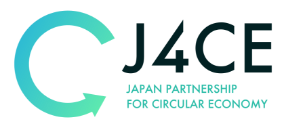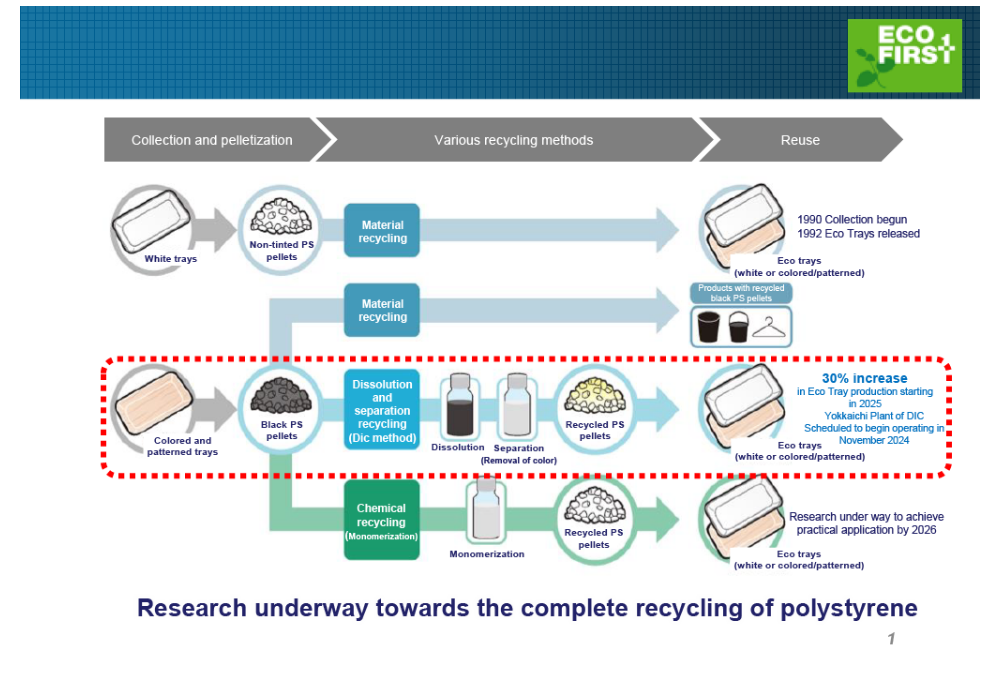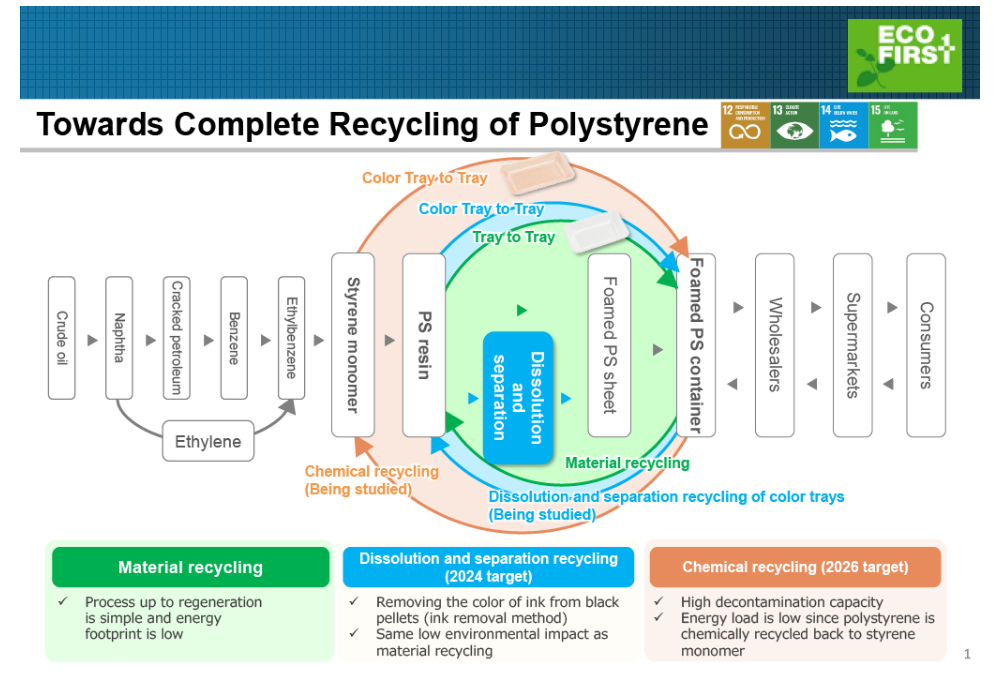Collaboration using the world's first new dissolution and separation recycling technology for the complete recycling of polystyrene.
[Company / organization] FP Corporation DIC Corporation
Basic values and policies for initiatives towards circular economy
FP Corporation(FPCO) believes that expansion of recycling activities is one of the most effective measures against climate changes and the ocean plastic issue and is steadily executing its "FPCO Method recycling" of "Tray to Tray" and "Bottle to Transparent container" which have been established by FPCO as mono-material recycling systems. Furthermore, FPCO is collaborating with DIC Corporation(DIC) to investigate the recycling of colored foamed trays using a new dissolution and separation recycling technology (Dic method: Deinking chemical process) and chemical recycling in order to realize complete circular recycling of foamed PS containers.
Scheme and Technology
In November 2020, DIC and FPCO announced plans to collaborate in the practical implementation of a closed-loop recycling system for polystyrene that maximizes the technologies, as well as the collection and recycling systems, of both companies.
In this initiative, colored foamed trays will be recycled into new trays just like conventional white trays using a new dissolution and separation recycling technology, enabling a "tray-to-tray" recycling. Additionally, this effort aims to realize the closed-loop recycling that uses chemical recycling technology to recycle polystyrene to styrene monomer, which is the raw material for polystyrene.
FPCO promotes “tray-to-tray” recycling, collecting post-consumer foamed PS trays from approximately 10,000 collection bases at supermarkets and other locations across Japan, and then recycling them into new food trays. Foamed PS trays can be either white or colored, depending on use. The used white trays from households can be recycled into new food trays. However, when colored foamed PS trays are recycled, the resulting black pellets are unsuitable for new food trays. Therefore, these trays are typically recycled into materials for clothes hangers and other household items.
To resolve this issue, DIC has developed a new dissolution and separation recycling technology specifically for colored trays. This technology, which makes use of the technologies and polymer design capabilities DIC has cultivated as a manufacturer of inks to eliminate colored elements from black pellets, will be adopted at polystyrene production facilities, enabling “tray-to tray” recycling of colored foamed PS trays as of white trays.
DIC Yokkaichi Plant is scheduled to start operations in November 2024. From 2025, FPCO plans to sell Eco Trays manufactured using the raw materials from this plant. We anticipate a 30% increase in the production volume of Eco Trays compared to the conventional ones.
FPCO is committed to realizing the complete circular recycling system, effectively utilizing used plastics, and contributing to the reduction of carbon dioxide (CO2) emissions throughout the life cycle of food packaging containers.
Reference URL
DIC and FPCO start a collaboration using the world's first new dissolution and separation recycling technology for the complete circular recycling of plastic food containers.
https://www.fpco.jp/dcms_media/other/press_keieikikaku_20220804.pdf
Analyst Meeting on Consolidated Financial Results for the Year Ended March31,2024(P33)
https://www.fpco.jp/dcms_media/other/AnalystMeetingFY2024Q4.pdf
- Recycle
- Design
- Production
- Distribution
- End-of-use
- Plastics
- Company in different category.
- Initiatives for the future



